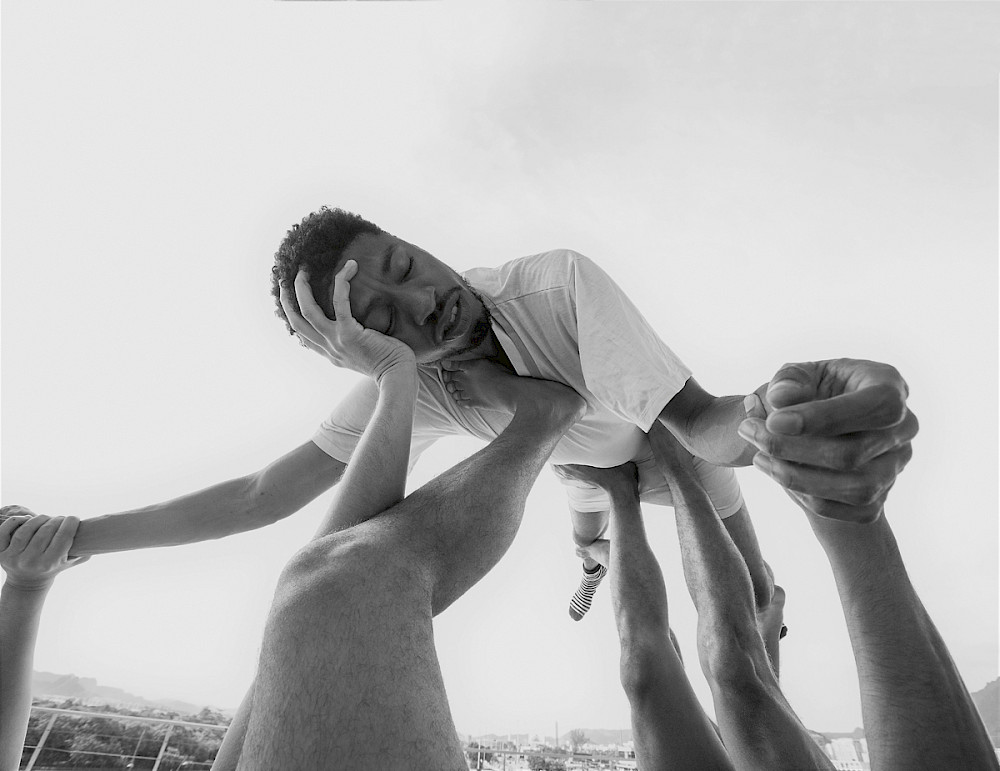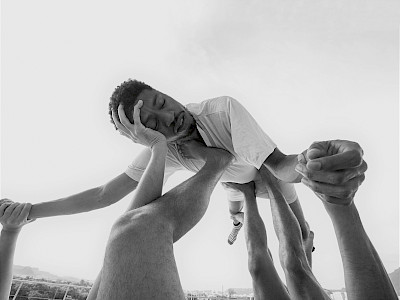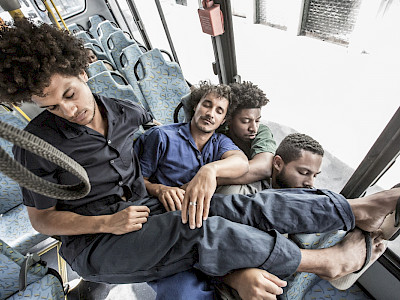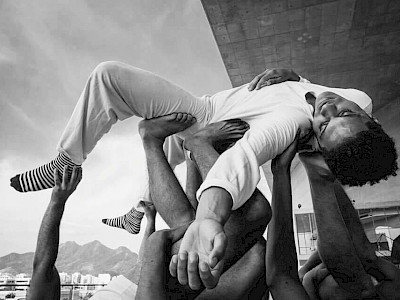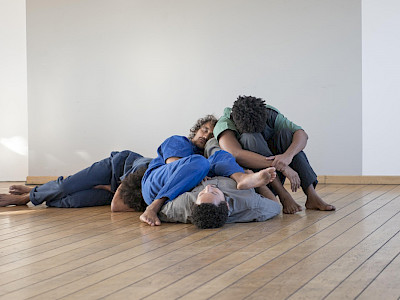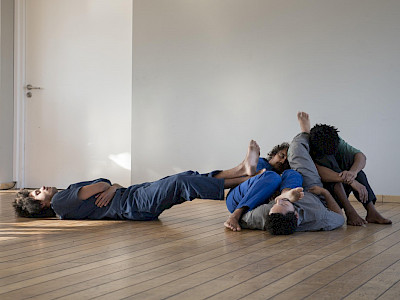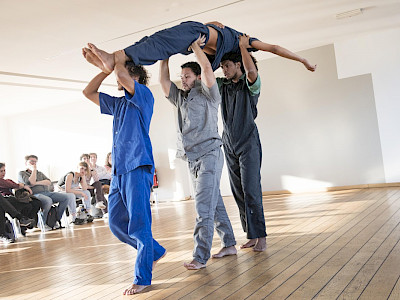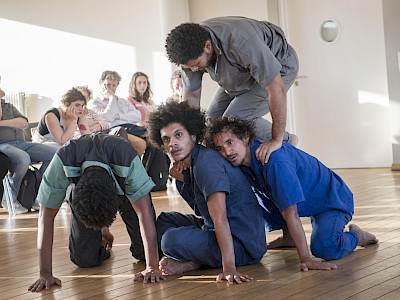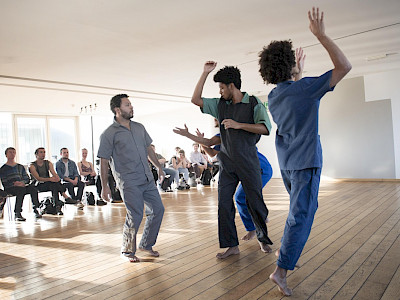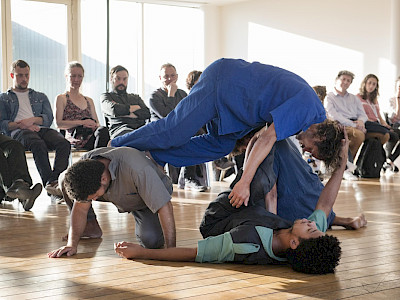04.05, 06.05, 09.05, 11.05, 13.05.2018
Alice Ripoll / Cia REC Rio de Janeiro
aCORdo
dance
⧖ 30min | € 14 / € 11 (-25/65+) | Meet the artist after the second performance on 5/05
Do you ever bother to notice the person who – for a small price – repairs your boiler, cleans your office, or brings you coffee? The contact between different social groups, between rich and poor, is often minimal. The existence of the other is sometimes even totally invisible. Theatre visitors are usually at a safe distance from crime and chaos, within a social order. However, the enforcement of that order is accompanied by oppression and intimidation. The work of Brazilian choreographer Alice Ripoll is driven by the polarised social reality in Rio de Janeiro. In aCORdo, four performers from the favelas turn the existing hierarchies and relationships between attendees inside-out through movement and interaction. In a subtle and seemingly innocent manner, a new order arises in which both dancer and spectator must inevitably reorient themselves. Who is who now? Who steals from whom?
See also
Workshop for associations – 7/05
aCORdo* emerges from the invitation Alice Ripoll received to participate with a new piece that should be created to be staged on the exhibition Que Legado (Which Legacy), held at the cultural centre Casteliho do Flamengo in Rio de Janeiro, from March to April, 2017. The piece should dialogue with the question of what would have remained as a legacy for the city after the great events that supposedly would bring improvements to Rio, the World Cup and the Olympics. Without giving a literally answer to the question, the artist proposes to think the city through the perspective of the performers she has been working with for eight years. They are black and live in a favela (slum). At the core of the balance that protects Rio de Janeiro from chaos is police action. It is the fundamental element that keeps the rich population away from the violence of a city watered by its deep inequalities. The most common of the means used by the police in their actions is the “check”, which means to check if a person is carrying anything illegal, for instance. This “check” also serves to intimidate (sometimes by beating them up) the poorest population.
The people who attend theatres, beaches, or the shopping malls, are thus protected from arrastões (a collective robbery that happens in the beaches), or from the contact with the poor, who are intimidated by the “check” and by other invisible mechanisms. Once intimidated they do not occupy the city and only transit between favelas (slums). Someone has to do the service: the Police. The “check” is a border, a wall action.
In dance we learn that the movement of the body produces space, where before there was none. We learn to occupy our own body, to produce spaces occupied by the body, areas occupied by spaces.
Here in this aCORdo we occupy the body, problematising the contours between the states of wakefulness, dream, thought, action, and habitation (of the body). In this cloud of dim contours, we suggest, through movement, a new zone between the public (space) and the artist (private) where other possibilities of occupation of spaces and bodies emerge.
In a closed room, the restricted space for freedom, four uniformed dancers create images and sensations face to face with the audience. We reconquered deserted areas, infertile laps, insipid looks. We connected tears and knees, jealousy and avenues, dumpster and mummy, university and umbilicus, nostalgia and low back pain, the reminiscence of wrinkles on the Elephant’s butt. And the “not feeling right” feeling just by walking around this part of the city.
Dance creates mysterious, unpredictable and out of the word bridges, there reside its power and capacity of transformation.
* The word “acordo” in Portuguese has a few meanings such as: Wake up, agreement, accordance, keeping, cartel and convention. Another possibility of reading of the title is in the way it’s written: a-COR-do if separated is (the-colour-of).
Director Alice Ripoll
Cast Alan Ferreira, Leandro Coala, Romulo Galvão, Tony Hewerton
Assistant Anita Tandeta
Pictures and video Renato Mangolin
Presentation Kunstenfestivaldesarts, Théâtre National Wallonie-Bruxelles, La Bellone, Kanal – Centre Pompidou
With the support of Centro Coreográfico da Cidade do Rio de Janeiro
Thanks to prof. Irene Ferraz, Escola de Cinema Darcy Ribeiro
